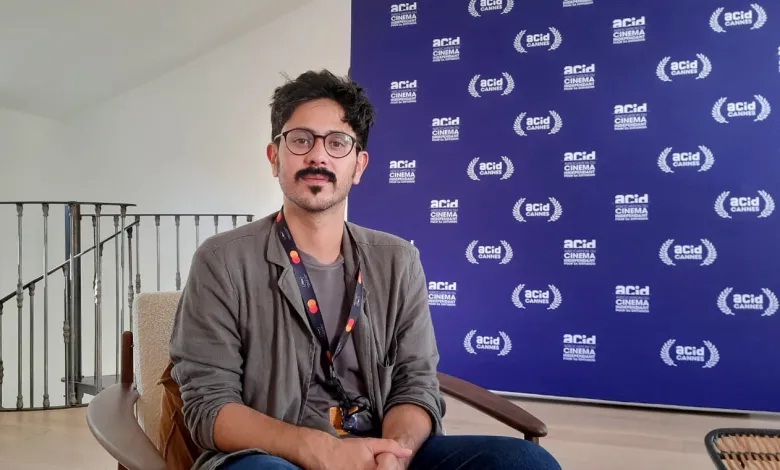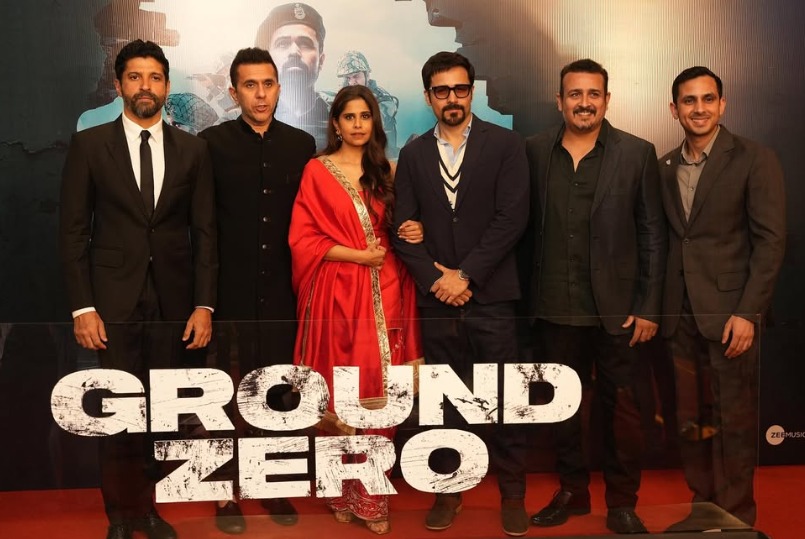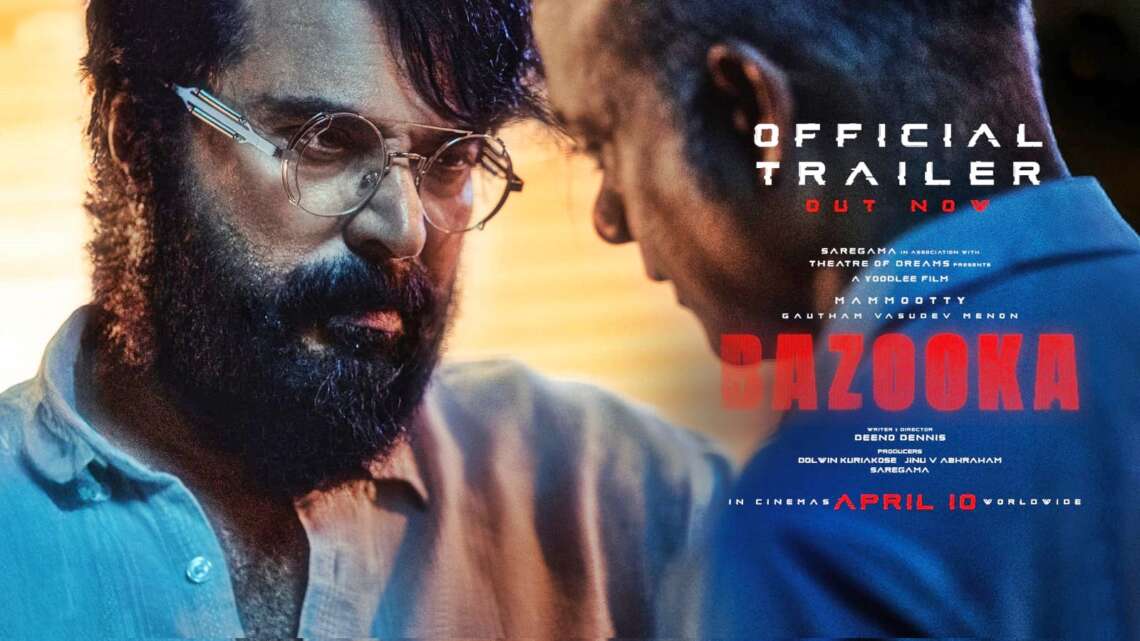The idea of the film emerged from an incident he “witnessed or heard” when he was around 12 years old. Someone had come back to his hometown (Ladakh) after a long time and was trying to make small talk with people around…writes Sukant Deepak
He says when one moves physically to another place, it is not just the body that displaces. And when one comes back, he may suddenly become an ‘outsider’.
Questions of identity and the ‘insider-outsider’ dilemma have always fascinated Ladakhi filmmaker Maisam Ali, whose debut feature film ‘In Retreat’ is the first ever Indian film to be screened in Cannes’ ACID sidebar where 14 filmmakers viewed several hundred movies and decided on nine from different countries for the category.
Shot during winters in Ladakh, and mostly at night, the film revolves around the protagonist (played by Harish Khanna), now in his 50s, who returns home to Ladakh. Having missed his brother’s funeral, he lingers at the threshold of his old home, maybe to delay one more night of his arrival.
The idea of the film emerged from an incident he “witnessed or heard” when he was around 12 years old. Someone had come back to his hometown (Ladakh) after a long time and was trying to make small talk with people around.
“Everyone said he was so polite… it left me very sad for him. This has always stayed with me. You know I do not even remember if I had seen the man or just heard about him. But this very glimpse, a snippet of a memory played on me. All I knew was that I had to make the film on what transpired/ did not with him,” this 35-year-old tells IANS.
Trapezing on the edge of grimness, this very personal film with almost a poetic treatment dwelling on ‘belonging’ has much to do with the director’s lived experience, who was born in Iran where his father had gone to work.
“I came back to Ladakh after a few years. Of course, my parents and relatives are from here. But my great-grandfathers were traders who would travel with animals to China, Central Asia, Amritsar and Kashmir. Guess the question of ‘belonging’ is deep in my DNA,” he smiles.
A qualified engineer, Ali was part of the group assigned to make a film at college. “It was a very amateur one, and we did not know anything. However, writing dialogues was a thoroughly enjoyable process. There was an intense pull towards the medium. Also, I was watching a lot of films during that time, and did theatre, and I knew that this was my true calling. I was never a good engineering student, but back then the time I was born, it was not so ‘fashionable’ to follow your passion,” he smiles.
Ali, who enrolled at FTII two years after completing his engineering degree (“after wandering around”) stresses that it was more than filmmaking that he learnt there. Adding that it was a place where he found his voice, he says craft is not something he looks forward to.
“One can learn the techniques in six months. But, a school must help you find your expression. Anyone can learn the technicalities, however, at the end of the day, you have to know why you are doing what you are.”
Interestingly, the film stays away from the tourist gaze, avoiding wide-angle shots of Ladakh’s stunning landscape. Instead, the viewer is pushed into labyrinths, closed alleyways, tiny cafes, and the very mundane.
“As filmmakers, we are always in search of the real experience. But then, the real always escapes us, and we are constantly striving to capture it. So, when you are making a personal film, it is paramount to stay away from postcard images. As an artist, I felt that was not my reality,” he opines.
However, he does capture the almost surrealistic Ladakhi nights where the texture of light changes during peak winters. The director feels it was important to shoot during those hours.
“The story demanded it. I arrived at a certain plot, where I felt the lead actor was ‘in the night’, as he did not want to be seen. Nights can be long, and you do not have to worry about the consequences of the day. Under the sun, the mainstream society rules, it is only during the night that someone like my lead character can be present, and at the same time absent,” says Ali, who is director Payal Kapadia’s batchmate, the first Indian to win the Grand Prix for her film ‘All We Imagine As Light’.
Although nothing ‘grand’ takes place in the film, and many things are left unanswered, it is tough to get distracted while watching ‘In Retreat’. The filmmaker asserts he has never been interested in plot-chasing narratives, but believes in offering a complete experience.
“The atmospherics must precipitate a feeling that a lot of things are happening, or maybe nothing is. That makes a movie more universal.”
Influenced by works of directors like Robert Bresson, Yasujiro Ozu and Abbas Kiarostami, he feels that for all these masters, an ideal film is one where one can celebrate life by looking at the simple and natural, and not running behind a fantasy.
“Such films have always excited me. The whole discourse of realism around cinema has always been fascinating, like Andrei Tarkovsky said – ‘People go to watch films in search of lost time’.”
Made on a shoestring budget, Ali’s batchmates from the film school worked without a fee for his movie. Remembering his excitement when he got a video call from Cannes ACID, he says: “It was not easy for the jury to select this film considering it is so unconventional, and the audiences nowadays want more palatable cinema. But I am glad a space exists for fragile movies.”
While Ali may not want to make ‘boxed’ films on political issues, the going on in his native land do disturb him. Talk to him about engineer and innovator Sonam Wangchuk’s recent 21-day strike and he says that when Ladakh was part of the erstwhile state of Jammu & Kashmir, they enjoyed a fair amount of autonomy.
“Owing to red-tapism and bureaucratic lethargy, we wanted the territory to be a Union Territory. The whole idea was that people would be free to make their own decisions. But the reverse has happened. In fact, we have gone backwards. The decision-makers should be from here. There was a Hill Council before that would make important decisions, and people trusted them. Yes, we are getting a lot of funds now, but then that is not everything.”
Concerned about unregulated tourism, he feels that the place cannot become another Goa. “The locals understand that there is a paucity of water and many other resources. Those who visit do not. There has to be a system in place so that the fragile ecosystem is not disturbed,” he hopes.
Hoping to get an opportunity to release the film in India, even if it is on an OTT platform, he feels there is an audience for such movies in the country.
“It is just that somebody has to devise an out-of-the-box distribution channel for such movies. And yes, I am looking forward to showing the film in Ladakh and hearing what they have to say about it. Some may not like it, but at least there will be a discussion. Remember, I did not make it as a complete insider. A filmmaker goes to the other side, behind the camera to gaze from the outside.”
While he is at an early stage of developing his next movie, which will have a “bit of Ladakh” and also travel to other places including Kashmir, Ali says, “For me, it is important not to be overwhelmed by all the chatter around my debut and ensure that I continue making responsible cinema.”
ALSO READ-Anasuya Sengupta’s Cannes Triumph Sheds Light on Sex Workers’ Lives












